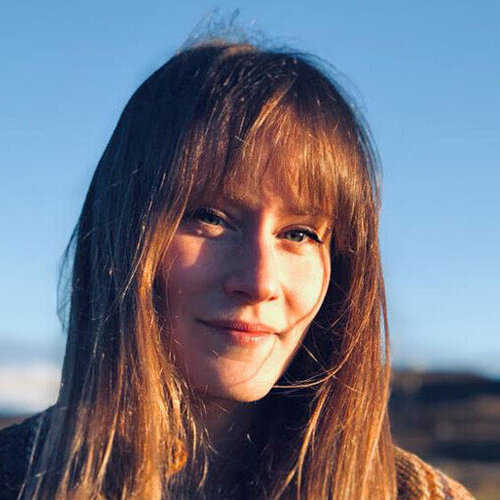We had a chance to catch up with Dr Sarah Bernstein, who is a Senior Lecturer in Scottish Literature & Creative Writing at both Undergraduate and Postgraduate level.
Tell us a little bit about your career so far...
I joined Strathclyde in December 2021. Before that, I worked at the universities of Edinburgh, where I did my PhD, and Sheffield. I spent a lucky few months on a research fellowship at IASH, too. Between and during my degrees, which were in English & Creative Writing, I’ve worked as a pool attendant, a terrible waitress, a subtitler, a clerk at a French-language library, a tutor, an audio typist, and a filer at a legal office, to name only a few. I also worked at the National Library of Scotland in Reference Services during my PhD, which I loved.
What has been the most memorable moment of your career to date?
When I found out my first novel was going to be translated into Portuguese in Brazil. Literature in translation has been very important to my own development as a writer and a thinker. There’s something so unbelievable about the idea that something I wrote might enter into a dialogue in a different language, in another country, that it has this afterlife so far beyond me.
What is your role within the school?
I teach and supervise across literature and creative writing at undergraduate and postgraduate levels.
What inspired you to enter your field/profession?
I didn’t enter the field with any idea that I’d ever get an academic job. But I kept at it because I couldn’t get over that feeling when you’re reading all these disparate sources on a topic, or an idea, and suddenly a pattern emerges – something clicks and you can see how things are or might be related, how they might fit together.
What advice would you give to someone starting out in your field?
In terms of undertaking research, I’d say read as widely as possible, and not just in your field. Sara Ahmed talks about the paradox of the footprint, where because a path (or a way of thinking) has been established, it makes it easier for us to follow, and we do, which entrenches that path or way of thinking. Try to break out of that – like Saidiya Hartman says, better an errant path than the known world. Also, be generous, intellectually and personally. Refuse the idea that we’re operating under conditions of scarcity and that we need to compete with one another.
What initially attracted you to the University of Strathclyde?
The interest in hybridity and being able to work across English & Creative Writing.
What are your biggest professional challenges?
Time. The time to attend to all the different components of the job with the care each deserves.
What current trends do you see influencing your field?
For a few years now there’s been a renewed focus on the social uses of literature – whether and how literature can act in the world.
Tell us about any research you are currently involved in...
I’m interested in the idea of literary difficulty – what makes a text difficult? And what is difficulty for – what can it do? I’ve been inspired by a lot of feminist work on refusal by writers like Saidiya Hartman and Denise Ferreira Da Silva, and I’m currently co-editing a cluster on ‘Gestures of Refusal’ for Post 45 Contemporaries with my friend and colleague Dr Yanbing Er at National University of Singapore. I’ve been trying to find time to work on a project on the relationship between literary difficulty and the idea of the common good for a while now. Otherwise, I have a book manuscript in development that focuses on mid-century writing, gender and the welfare state, and I’ve just finished my second novel, Study for Obedient, which borrows from the painter Paula Rego’s idea that women can be ‘obedient and murderous at the same time’.
Any special thanks or shout-outs you'd like to give to colleagues who have helped or inspired you throughout your career here?
I’ve only been here a few months, but everyone in ECW has been very supportive and welcoming so far.
If you could switch jobs with someone, who would it be?
I’m very lucky to have this job, but I always wanted to be either a park ranger or a filing clerk in a basement warehouse.
What keeps you busy outside of work?
Reading, growing vegetables, raising a few sheep, cold water swimming.
What is your guilty pleasure?
I’m trying not to feel guilty about any small pleasure I can eke out in this life.
